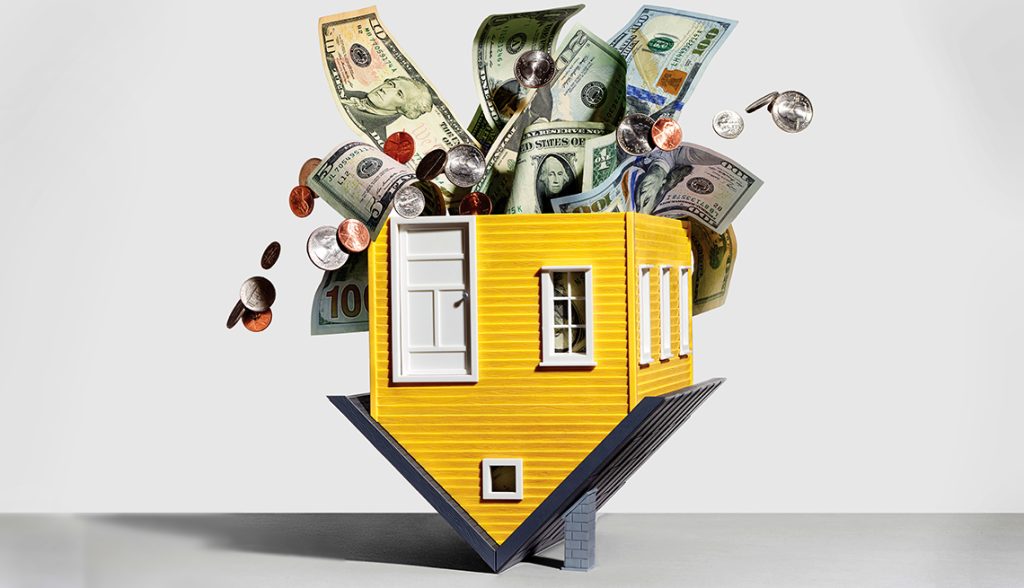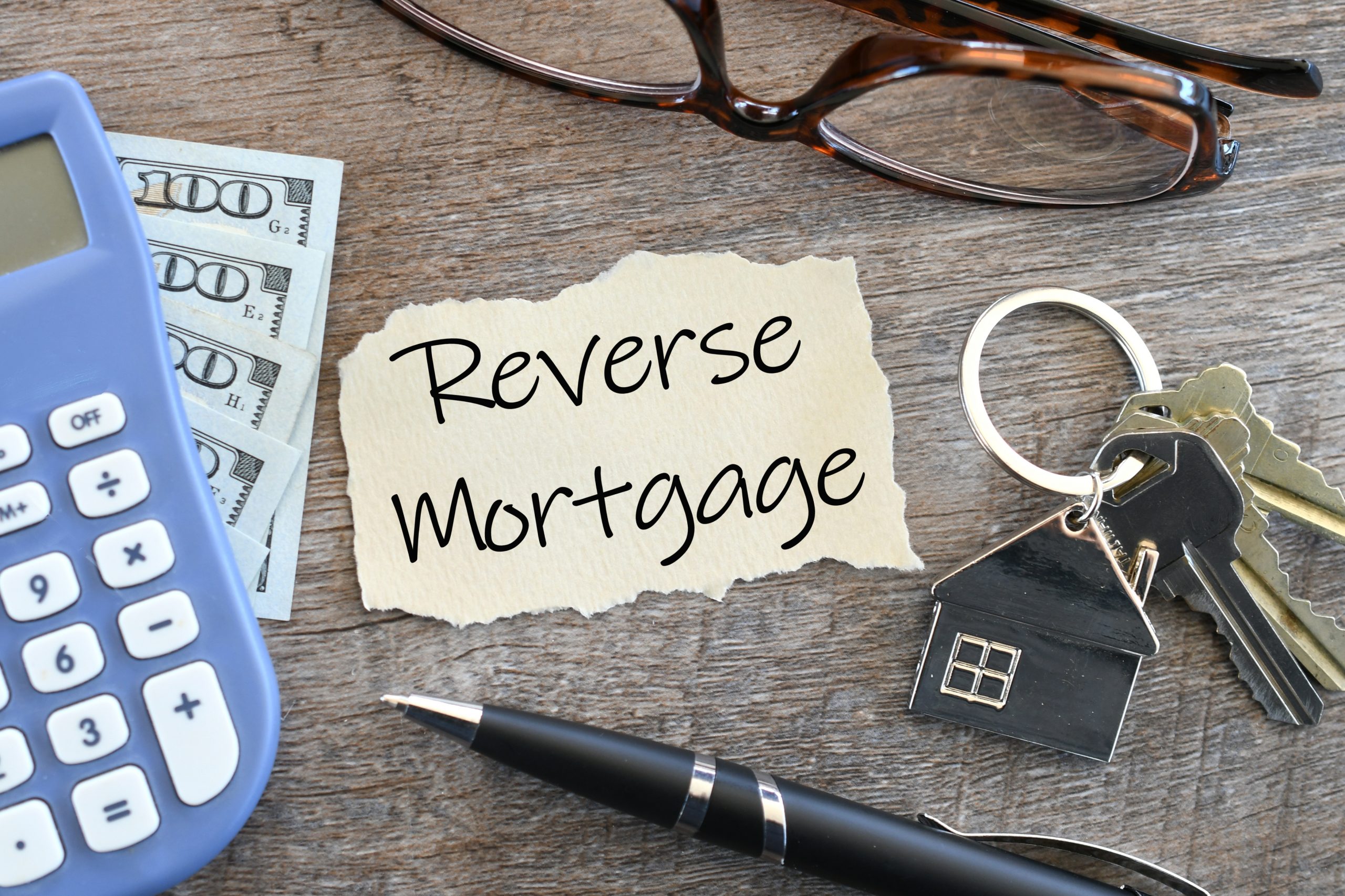If you are stuck over “What Are Reverse Mortgages,” then you have landed on the right site. Financial institutions have been making our lives easy since their discovery. With lots of credit options for people, they have improved our lifestyle and uplifted our living standards globally. People who weren’t able to buy properties can buy through loans. Similarly, people can borrow money against their home equity – this is exactly what a reverse mortgage is.
Let’s dig deeper to find what are reverse mortgages.
What Are Reverse Mortgages?
A reverse mortgage is a type of loan that allows you to earn money from your home equity without selling your property. This is sometimes referred to as “equity release.” You can borrow up to 55 percent of the current value of your home.
However, the maximum cost you can borrow depends on:
- Your age
- Your lender
- Your home’s appraised value
It allows mostly seniors of the society to borrow money on their home equity or property. Unlike forward mortgages used to purchase houses, reverse mortgages don’t require the homeowner to pay monthly installments. You heard that right; you don’t need to pay monthly payments for a reverse mortgage.
However, your property or house is the repayment of the mortgage. All monthly charges like interest and fees accumulate in your loan balance each month, and the balance grows. Owners are discharged from their loan obligation when they stop residing in the household.
Federal regulations request lenders to structure the transaction so that the loan amount does not exceed the home appraisal value. If the loan balance exceeds the house’s total worth, the borrower or the borrower’s equity won’t be responsible for paying the difference.
Eligibility for a reverse mortgage
To qualify for this mortgage, you should be:
- A homeowner
- 55 years or older
You may include all homeowners mentioned on your home title and documents when applying for a reverse mortgage. More so, all the listed individuals should be at least 55 years old to be eligible for a loan.
Your lender will demand independent legal advice from you and other homeowners. Whenever you apply for the reverse mortgage loan, your creditor will consider:
- Your age, as well as the age of other individuals registered on the house title
- Where you live
- The present condition of the house, its type, and the estimated property value.
- The home you use for a reverse mortgage should be your primary residence, which means you must live in the rental house for at least six months.
How does a reverse mortgage work?
You have to repay and close any outstanding loans or credit lines guaranteed by your home before taking a reverse home mortgage. This may include mortgages and home equity lines of credit (HELOC). More so, the borrowers would use mortgage money to repay these costs.
Once you file for a reverse mortgage, lenders pay you an upfront lump-sum amount equal to your property value. You can use it to increase your monthly cash flow and pay your bills, expenses, personal vacations, etc.
Most commonly, they are aligned for people aged more than 62. Giving these loans to seniors increases their monthly cash flow income, which can help them pay some of the bills that may burden them. They are relief measures for aging societies.
Some more uses include:
- For repairs or renovations
- To help pay monthly bills
- Cover medical expenses
- To repay debts
Reverse mortgages may restrict other financing alternatives, so you won’t be able to secure a HELOC or similar loan products. The following are the five ways in which you can receive your funds:
Lump Sums
You can take the total cash up-front. However, you can have it in two sums, whereby the second payment comes a year after the first sum. These types of reverse mortgages have a fixed rate on the outstanding balance.
Monthly Payment
You have the option to receive monthly payments as long as you live in the house. However, this type has an adjustable interest rate.
Term Payment
You can also choose to get monthly payments for a certain period. Similar to monthly payments, it also has an adjustable interest rate.
Line of Credit
In my opinion, it’s one of the best ways to get your loan funds. With a line of credit, you’ll get funds anytime you want, meaning you have the freedom to withdraw money at any time. However, since you withdraw money at any time, this type also has an adjustable interest rate which changes according to the prevailing rate.
Mix of Options
In this option, you have the freedom to select two types for your funds’ reimbursement. Suppose you are entitled to a loan of $200,000. You can take a $50000 upfront lump-sum amount and the rest on a monthly receipt option or even a credit line option. Therefore, this type is quite a flexible option, and you can even change your options in the future.
Those points, as mentioned earlier, are the types of reimbursement options you can have with your loan funds. With a reverse mortgage, the right of home titles rests with you. However, this means you have to pay all property-related costs like property taxes, utilities, and insurance. However, it also has some costs, like some lenders charge origination fees and other closing costs.
One of the biggest downfalls of reverse mortgages is that you owe more over time. As your mortgage period grows, you owe more overtime because interest costs accumulate on your loan balance.

How to recover a borrowed loan
You don’t need to make any regular repayments on a reverse mortgage. It is essential to note that you have the alternative to pay the principal balance and interest charges at any time. However, you may need to return a payment to complete your reverse home mortgage early.
You must repay the debt if the following situations occur:
- You sell your house
- Move out entirely from your home
- The last borrower dies
- Default in loan payments
You could default on your reverse home loans by:
- Using a reverse mortgage to pay any illegal costs
- Being dishonest in processing your mortgage application
- Letting your home fall into a state of disrepair that would decrease its worth
- Not following any terms or conditions in your reverse mortgage contract
Every lending institution has its criteria for setting default on a home mortgage, so communicate with your lender to determine the possible reasons for failure.
The deadline for paying a reverse mortgage may vary. For example, if you die, your estate may have 180 days to refund your mortgage. However, if you turned in long-term care centers, you might have a one-year turnaround time. Finally, contact your lending institution for information concerning the timing for repaying a reverse mortgage.
The cost of a reverse mortgage
The expenses associated with reverse home mortgages may include:
- Higher interest rates than traditional mortgages
- Home appraisal cost
- Setup cost
- Early repayment penalties if you repay your mortgage before the deadline
The prices will vary depending upon your lending institution. Some charges may be added to the total balance while requesting others to repay upfront.
Where to get a reverse mortgage
In the U.S., different financial companies offer reverse mortgages. RateChecker.com (for instance) provides the unique Home Income Plan, which is available across the country. You may acquire a reverse mortgage directly from Home Equity Bank or through a mortgage broker.
Before getting a reverse mortgage, shop around and research your options. Your financial institution may grant other loan products that meet your requirements.
Compare the prices of the following possible alternatives to the reverse loan mortgage:
- Getting other types of loans, such as credit lines or credit cards and personal loans
- Exchanging your house
- Acquiring a smaller residence
- Renting another apartment or house
You may speak to a financial advisor and your family when applying for a reverse mortgage. Make sure you understand how reverse mortgages work and how it affects your homeownership over time.
Pros and cons of a reverse mortgage
Before you decide on a reverse mortgage, remember to scrutinize its advantages and disadvantages.
Pros
- You don’t need to pay monthly installments.
- You are not required to repay tax on your borrowed money.
- This money will not affect OAS or retirement benefits provided by guaranteed income assistance (GIS)
- You still own your property
- You have options to select when and how to receive funds.
Cons
- Interest rates are higher than other types of mortgage
- When the loan accrues interest, your home equity may decrease
- Your property must repay the loan and interest within a specified time after your death
- The time required to settle an estate might be longer than the time allowed to pay back a home mortgage
- Your estate may have limited funds to support your children or other beneficiaries
- The cost of repaying a mortgage may be higher than a traditional mortgage or other loans product.
Rates Of Reverse Mortgages
The rates for Reverse Mortgages are some of the things that you need to know. These are some of the current and changeable rates.
- 30-year fixed refi 3.84% 0.03 3.87%
- 15-year fixed refi 3.04% 0.07 3.11%
- 10-year fixed refi 3.12% 0.02 3.14%
Individuals who are looking for reverse mortgages should be aware of the mortgage interest rates because they may change on a weekly basis. The fact that the rates change is just some of the things to be aware of with these specialized mortgages. It is helpful to check the interest rates on a regular basis. It is always helpful to talk to a mortgage professional who specializes in reverse mortgages for the facts as it relates to you.
Reverse mortgage Scams
As you shop for a reverse mortgage, beware of two common scams:
- Some contractors offer home improvement services in exchange for a reverse mortgage.
- VA doesn’t offer reverse mortgages, but you may see ads promising special deals for veterans, such as a fee-free reverse mortgage, to attract borrowers.
Be vigilant to avoid reverse mortgage scams. If someone presses you to sign a contract, it’s a red flag.
Conclusion
What Are Reverse Mortgages? Reverse mortgages are a great opportunity for senior homeowners to secure loans if they face difficulty meeting their necessary monthly payments. The above mentioned is a detailed guide about what reverse mortgages are, how they really work, and their structure. If you are interested in a reverse mortgage, visit RateChecker.com for more info.

